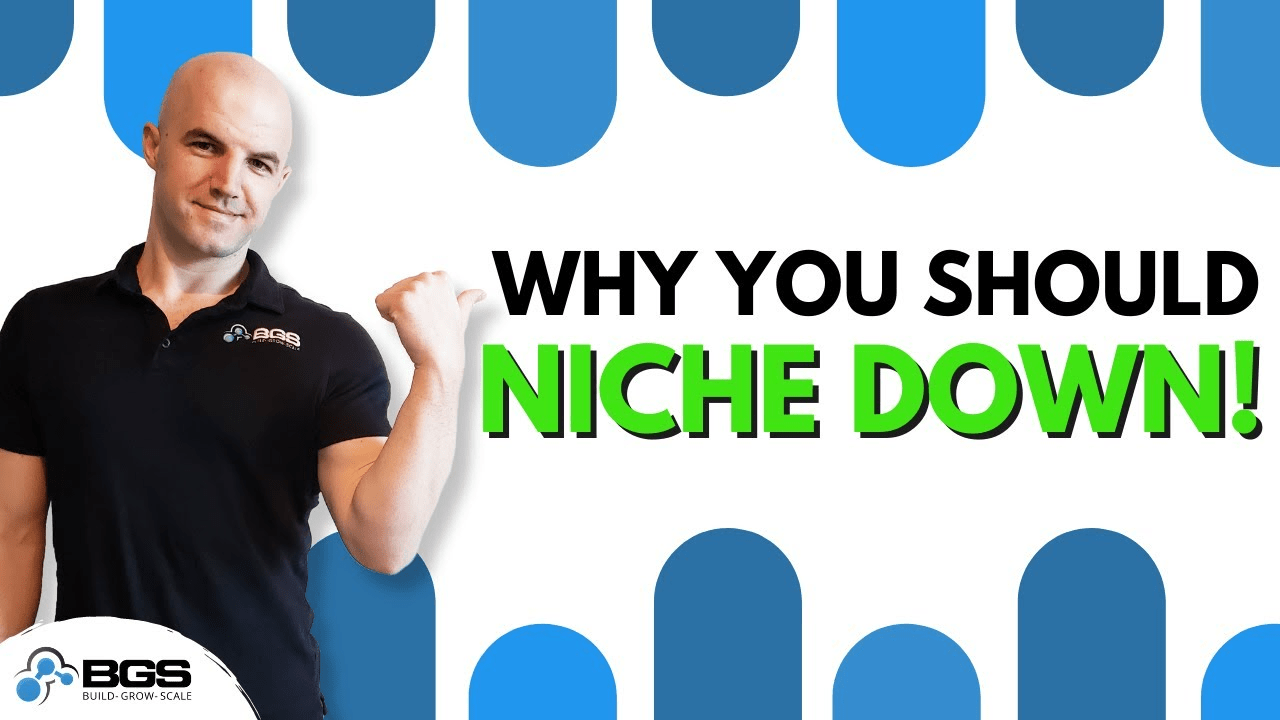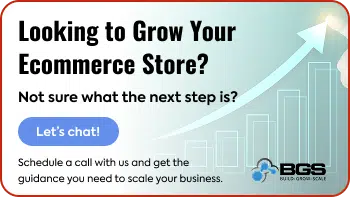Ecom Principle: Don’t Be Like Walmart—Niche Down!

If you’re like most ecommerce store owners, I’m sure you’ve struggled with this question before, or you may even be struggling with it right now. The question I’m talking about is whether you should go with a general store or niche down to something more specific.
I know it’s very easy to get sucked into the idea that in order to test a lot of products at the same time, you need to sell everything (a general store) so you can find what works and what doesn’t. But I’m here to tell you not to do that. Don’t be like Walmart—niche down. And here’s why.
Why You Should Niche Down
The wider your market is, the harder it will be for your business to turn a profit. Realistically, you have limited funds and need to make the best return on investment for your business. So, you need to focus all your efforts on a niche that sells a specific subset of products. I’m talking about a “narrow” niche. For instance, I’m not talking about “fitness.” That’s too broad.
Let’s go back to Walmart for a second. Their model is to go wide. They’re not into any specific niche; their market is everyone, they sell everything to everybody. Walmart can do that, but you can’t. You’re not Walmart, or Amazon, or even Cabela’s. Unless you have tens of millions of dollars in marketing budget to spend, and enough capital to keep hundreds, if not thousands, of units of inventory in stock, you simply cannot compete with the big-box stores. So, don’t try to.
If you’re venture-funded and told to try it, by all means, go for it … But that’s not reality for most of us and there are far better ways to spend your money.
Other Issues to Consider
There are several other issues to take into consideration as well. Look at the marketing of these mass niche retailers. They never actually market the benefits of their products. In fact, they specifically market that they have the lowest possible price, and competing on price is something that you never want to do, especially as a small ecom business.
The other problem with a wide market is you can’t target your ideal customer. How are you supposed to find them and actually show them your offer with your limited marketing budget and capacity? Let’s say you have $1,000 to spend on ads and your target is women. How many of those women will actually see your offer and actually be interested in buying it?
So, how do you go about targeting deep instead of wide? You get specific.
How to Niche Down
Consider the fitness market, for example. Just “fitness” is way too broad of a niche. It encompasses everything from mountain climbing to weightlifting, cycling, running, yoga, and much more. You could, however, niche down to something specific, like mountain biking. You could even take it a step further and target downhill riding. The audience for this niche loves crashing down hills in the summer at ski resorts. It’s a very specific, passionate subset of a market, and a very good one at that. In fact, it’s far superior to the general fitness or general cycling niches.
However, you must be careful not to take this to the extreme. A niche like “underwater basket weaving” is too obscure to be sustainable. While there are certainly people out there who like to weave baskets under water, that market is just too small to build a business around. The chances are much higher that you’d go too broad than too narrow though. We’ve never had a client who niched down “too much.” Most of them try to go broad, and the ones that niche down usually don’t drill down as much as they should.
How to Target Your Niche
Let’s walk through an example. Let’s say you have a $1,000 marketing budget, and most of your products are geared toward mountain bikers but your store is built around general cycling. If you spend your money targeting people who like general cycling, a very good portion of them might be kids or road bike fanatics who don’t even like mountain biking. So, you will technically only reach a small portion of people that are truly interested in mountain bikes. But, if you build your store around downhill mountain biking, you can put that same $1,000 specifically toward targeting downhill mountain bikers. Now that you’ve narrowed down your audience instead of going wide, your marketing dollars will go a lot farther and yield a much higher ROI.
Real-life Example
This actually happened to a client of ours who wanted to get into the yoga market. All of his products were entirely focused on Bikram Yoga, but all of the messaging and branding on his site was about regular yoga. Bikram Yoga is hot, sweaty, and has a very specific and passionate audience. It’s a far cry from the more zen, regular kind of yoga.
When we started working with this client, we helped him change everything—branding, company image, messaging, advertising, etc.—to specifically target Bikram Yoga. And guess what happened? His sales skyrocketed by 57% almost immediately. He changed his strategy from going broad to narrow and reaped the benefits. This story is the perfect example of why you should niche down.
Wrap-up
Don’t get sucked into thinking that you need to have a broad, general store to have a successful business. There’s a saying, “When you try to sell to everyone, you end up selling to no one.” And if you’re not a big-box store, that’s absolutely true. So, narrow your niche … then narrow it again … and then once more for good measure. You (and your bottom line) will thank me.
Lastly, if you’re interested in working with Build Grow Scale or learning more about what we do, go to workwithbgs.com and schedule a free strategy session with one of our Revenue Optimization™ experts. We’d love to help you formulate a plan to take your ecommerce business to new heights!






